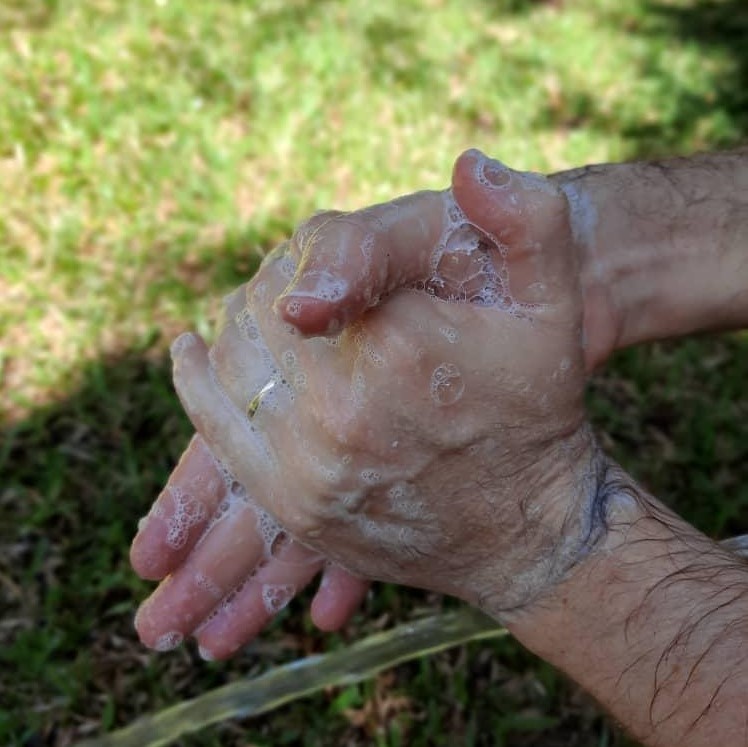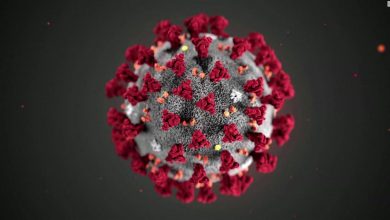
When it comes to the Coronavirus (COVID-19), focus is usually on the number of people who have contracted the virus and the daily death toll.
Less is said on the patients who manage to defeat COVID-19 due to their positivity, faith, support system and medical care.
Zimbabwe has so far recorded 25 confirmed cases, including three deaths and two recoveries.
Most of the patients experienced mild or stable conditions and have been put on self-isolation at their homes.
CITE managed to speak to Zimbabwe’s first COVID-19 patient, a 37 year old man from Victoria Falls who has just recovered from the virus.
He is the country’s second recovery.
Adam Finch* said when he started feeling ill, he was convinced it was not COVID-19 because his symptoms seemed milder than what he “had seen on the television and news stations” and had previous bouts of flu “that were much worse and dilapidating.”
When he tested positive, Finch was worried about the stigma attached to the pandemic.
He admits he was also troubled to hear Zimbabwe had a recorded a second positive confirmed case that of Zororo Makamba.
“It was a very sad story and I was saddened to hear there was a second case, even though I knew it was inevitable. That sadness then turned to a will to potentially reach out and unite, knowing that we were not alone in this – sadly that was not to be as he lost his battle,” he noted.
Makamba was a 30 year old media personality, who later succumbed to the virus.
His death became an eye opener for Zimbabweans that the virus was a real threat and for Finch, a realisation that his illness could go either way.
“It hit home harder and made me realise that even though I was feeling ok, things could always turn for the worst. My thoughts and prayers went out to his family, friends and loved ones, by all accounts I read, he was a great person and left a lasting impression on those that were fortunate to know him,” Finch said.
Finch who is employed in the tourism industry, took part with other Zimbabweans in a ‘road show’, organised by a UK Public Relations company and supported by Private Tourism Stakeholders as well as the Zimbabwe Tourism Authority (ZTA) to promote Africa as a holiday destination and the country to the UK.
The road show which started on March 17 was a bus trip from Manchester to London with a stop along the way, where Finch and colleagues would visit a different region and interact with different travel agents each day.
“We spoke about Zimbabwe, the different areas and lodges we represent and explained why the country should be on every travelers wish list, from the mighty Victoria Falls, the stunning Zambezi to the beauty of Lake Kariba, Matopos, Hwange National Park and of course Zimbabwe’s standout feather in her cap – the amazing people of Zimbabwe,” Finch narrated.
Finch stresses that before they travelled, COVID-19 was not yet declared a pandemic and they had checked with stakeholders who deemed it was safe to travel, since the UK had not faced any outbreak.
“I don’t want people to think we were irresponsible to travel. Had we known how fast the virus would spread in the UK – we would never have undertaken the trip and put Zimbabwe at risk on the return,” he said.
Finch noted it was hard to exactly pinpoint when he got infected, as there were moments he felt tired and ‘not myself’ on the road show.
He thought it was due to the UK cold or was missing Zimbabwe’s warm climate.
“Once I arrived home on the Sunday (March 15) – I was feeling quite fatigued after the long flight and the end of a successful sales trip. I slept early and tried to rid of the jet lag that accompanies 24hrs of travel. I was already in isolation mode.”
He noted he had slight body aches plus the fatigue and by then UK had recorded a few cases and many more around the world as COVID-19 was declared a pandemic.
A few days later, Finch said his vision became a bit blurry and noticed a dry cough, “about four times an hour”
“ I still had no fever nor a headache. The symptoms I were feeling would not have been enough to stop me from going to work, visiting friends or playing soccer or touch rugby on the Monday or Tuesday,” he said.
One evening, Finch noticed a slight tightening in his chest which for the next few days he had difficulty in breathing.
“By now I had already contacted my Dr. As the cases in the UK has started to increase rapidly and with my symptoms, he suggested a test and jumped into action. The Rapid Response Team arrived the following day.”
Finch recalled “it was quite something for one moment to be in the comfort of your house and the next have white protection suits arrive.”
After hearing he was positive, so many questions flooded his mind.
“Your head starts racing and you are trying to listen to the Dr on the line but you are also thinking one thousand other things – who had I been in contact with? What do I tell my family? What happens if it becomes worse? Will it now grow worse? How many days did I read it takes to become worse? Will I pull through? Why did I travel? Why, who, what, when!”
He said his doctor was reassuring, made sure he was calm and understood he was not alone.
“We then had to retrace everyone I had been in contact with. It was a tricky task but eventually we had all the names of the other Zimbabweans that were with me on the trip, which flight I was on, who was my driver from the airport, as well as my meet and greet friend who was kind enough to assist with my bag and so on.
“Fortunately, everyone I had been in contact with came back with no symptoms – they too were isolated for the period deemed safe by the Ministry of Health and Child Care and am pleased to say that none of them ever developed symptoms.”
Finch said he also called a friend in the UK with whom he had met to inform him and his friend remarked, ‘mate, I could have infected you!’.
To Finch, this was a serious statement and an accurate one, which took a huge amount of pressure off him.
“It made me remember – no one deliberately catches Corona and no one deliberately spreads it – yes, I was a positive case, the first positive case in Zimbabwe, but I did not invent Corona nor did I willingly catch it. I had followed all protocol with hygiene and sanitation but sadly for whatever reason, I had contracted it.”
Finch said he cannot recall where he might have contracted the virus but “the only certainty was that I had it and was the first positive case in Zimbabwe.”
He noted that having COVID-19 felt like the a normal bout of flu.
“Whilst I was feeling fine and my symptoms never increased to anywhere that would need to go to hospital or call the Dr, you now know that you have it and it could turn for the worse,” Finch said.
Although Finch defeated COVID-19, he lamented that others had not survived like him and urged people to take coronavirus seriously.
“We need to protect the vulnerable – don’t be selfish, stop thinking about you and how your lifestyle has had to take a back seat for a few weeks. If we listen to the advice of the professionals and not all the fake news that is spread we can overcome this and get back to our normality sooner rather than later. Even if you have the virus on your hands for whatever reason, we must be grateful that simple soap will kill it.

“Practice social distancing, practice self isolation when told to. Wear a mask – the mask is two fold – to stop you from catching it but it will help stop you from spreading it. Remember you may not think you have it as you are feeling fine like I was, but the virus is using you as a vector to spread. Use a mask in public where possible.”
Finch added it would be unwise for him to stop taking precautions or believe that he and his family were “bulletproof” against the virus since he had recovered.
“It is our civic duty to ourselves, to those around us and to our brave medical professionals as well as the great nation of Zimbabwe to heed caution and beat this virus so we can bounce back stronger than before,” he said.
Provincial Medical Director for Matabeleland North, Dr Pugie Chimberegwa, commended Finch for adhering to regulations, as he “never broke self isolation”
“To confirm, he had recovered, his sample was sent to the National Tuberculosis Reference Laboratory (NTBRL) at Mpilo Central Hospital in Bulawayo Thursday and tested negative. It gives hope to all those suffering from COVID-19 to fact they can actually recover and go back to normal lives.
“The client followed all recommendations and ended up with him not transmitting the virus to anybody else. This is a very good thing we urge patients, relatives and their contacts to adhere to the self isolation and quarantine rules. However, the medical team and client worked very hard to achieve this status,” he said.
Dr Chimberegwa explained that even though Finch has recovered, there were possibilities of reinfection as these had been documented elsewhere.
“You don’t want to go the direction of saying or giving false hope that because he recovered from the diseases therefore he is immune. Yes, there’s a scope of him being immune but there’s also a chance that he can still be re-infected because these are viruses and they mutate. So the same virus can change slightly, which is called mutation and you can still be re-infected,” he said.
“That’s why it’s still important he behave like all of us – practise social distancing and other preventative measures. He may be immune to coronavirus, if he get the exact same strain of the virus but this is an evolving disease and obviously there are no vaccines.”
*not real name






